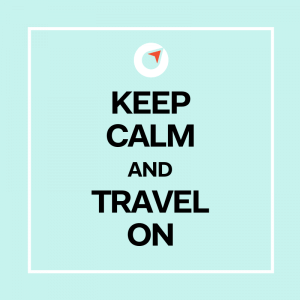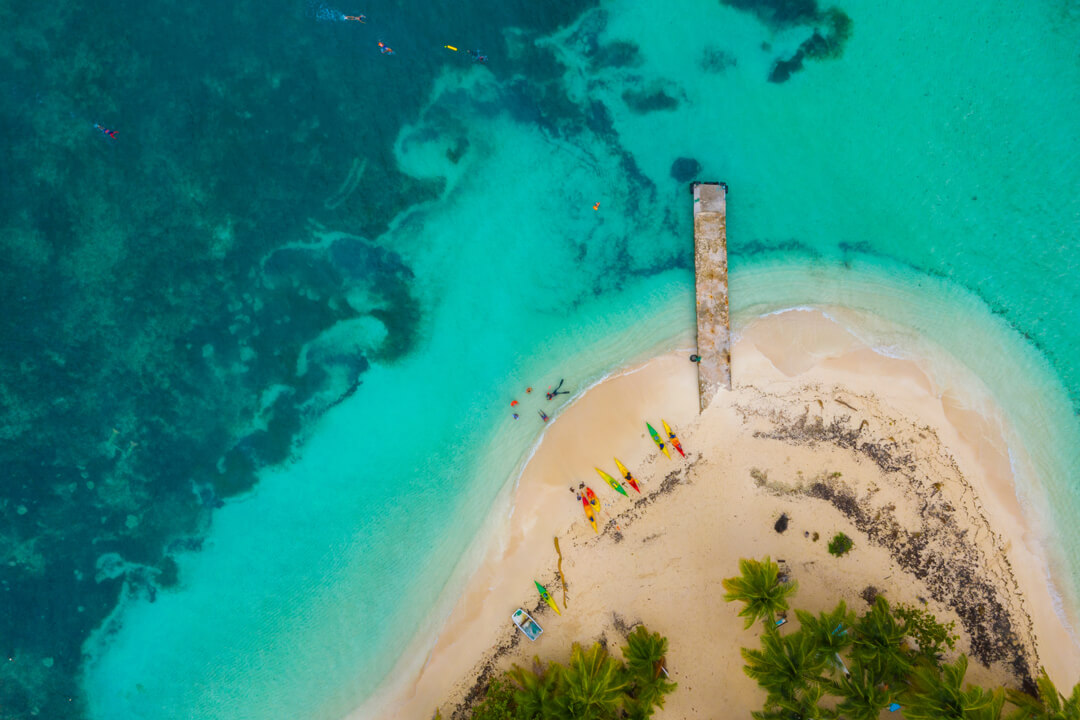Lately, there’s been a general sense of worry across the world, centering on COVID-19 (coronavirus). That’s understandable, since fear is a natural response to the unknown. But the round-the-clock coverage in the media will most likely continue to lead to increased fear and concern. Despite everything you see on the news—the shortages of medical masks and hand sanitizer, the stockpiling of canned food, toilet paper and other essentials—it’s business as usual for many.

Keep calm and travel on
Like any other time, each country presents different levels of risk (keep yourself informed and up-to-date with travel advisories issued by Global Affairs Canada). As long as you don’t knowingly go to coronavirus hot spots or places that have advisories limiting all non-essential travel, such as China, Iran or Northern Italy, you should be fine. At the time of this publication, 115 countries have not detected any coronavirus cases. And of the 78 countries with confirmed incidents, 52 of them have 10 or fewer cases, as gathered from multiple reports published daily by the World Health Organization (WHO). All this is to say that there are plenty of places you can still travel to, internationally and domestically.
Wondering what to do if there is a travel advisory for your planned destination? Be sure to read our post on how travel advisories can impact your travel insurance. We’ve also put together a few FAQs to address concerns travellers may have about COVID-19 and travel insurance.
Coronavirus-free international destinations
If you don’t already have a trip booked this year, don’t let fears surrounding the coronavirus stop you from exploring the world, and consider visiting these exciting destinations:

Africa
Some countries like Namibia, Tanzania and Zambia may be a little more off-the-beaten-path for Canadian travellers compared to destinations like South Africa, Egypt or Morocco, but they’re great locations for exploring the expansive grassland and desert landscapes of southern Africa.

The Caribbean
You could plan a tropical getaway to popular destinations like Jamaica, the Bahamas or Puerto Rico, but you can also take the opportunity to relax in world-class resorts along pristine beaches of some of the smaller Caribbean islands; the British or US Virgin Islands, St. Lucia, Dominica and Grenada are just a few that come to mind.

South America
Bolivia, Paraguay and Uruguay are often overlooked destinations for travellers who make their way down to South America. Each country offers a cultural experience and adventures that are different from its neighbours’.

Greenland
One of the more remote places you can visit, Greenland is also one of the most rewarding destinations for travellers seeking unforgettable scenery, wildlife and adventure on the arctic frontier.
Putting it all into perspective
- It might help cautious travellers to take a look at the numbers to see the bigger picture here. As of March 6, 2020, there are over 98,000 reported cases of COVID-19 globally. To put it into perspective, that’s 0.0013% of the world’s population (7.8 billion). On the upside, over 55,000 people and counting have completely recovered from the virus.
- In Canada, our risk is even lower, with 45 confirmed cases—0.00012% of our population (37.8 million). Meanwhile, seasonal influenza epidemics cause an estimated 1 billion cases worldwide each year; in Canada, that results in 12,200 hospitalizations and 3,500 deaths each year, according to the Public Health Agency of Canada. We don’t get as much media coverage or awareness about these figures.
- Keep in mind that the majority of those exposed to the COVID-19 virus exhibit only mild symptoms. The risk factor is greater for those of older age, and those who already have underlying health conditions leading to weakened immune systems.
To combat virus contraction, travellers should already be familiar with basic protective measures against the COVID-19, which are helpful in preventing the spread of other diseases as well. By practicing proper hygiene, thinking critically and staying objective, we can be proactive instead of reactive. Jumping to possibly wrong conclusions does more harm than good, and we risk adding to the panic that’s already inundating everyone’s social media feeds.
Have any upcoming travel plans or recent experiences you’d like to share? Tell us in the comments below!
